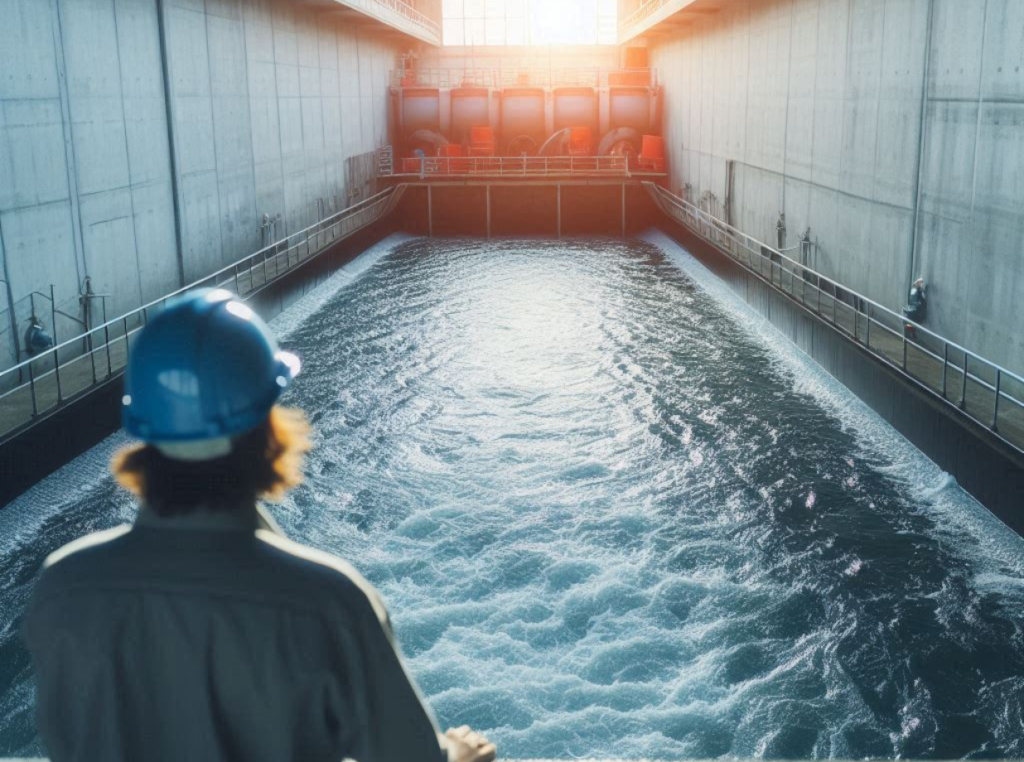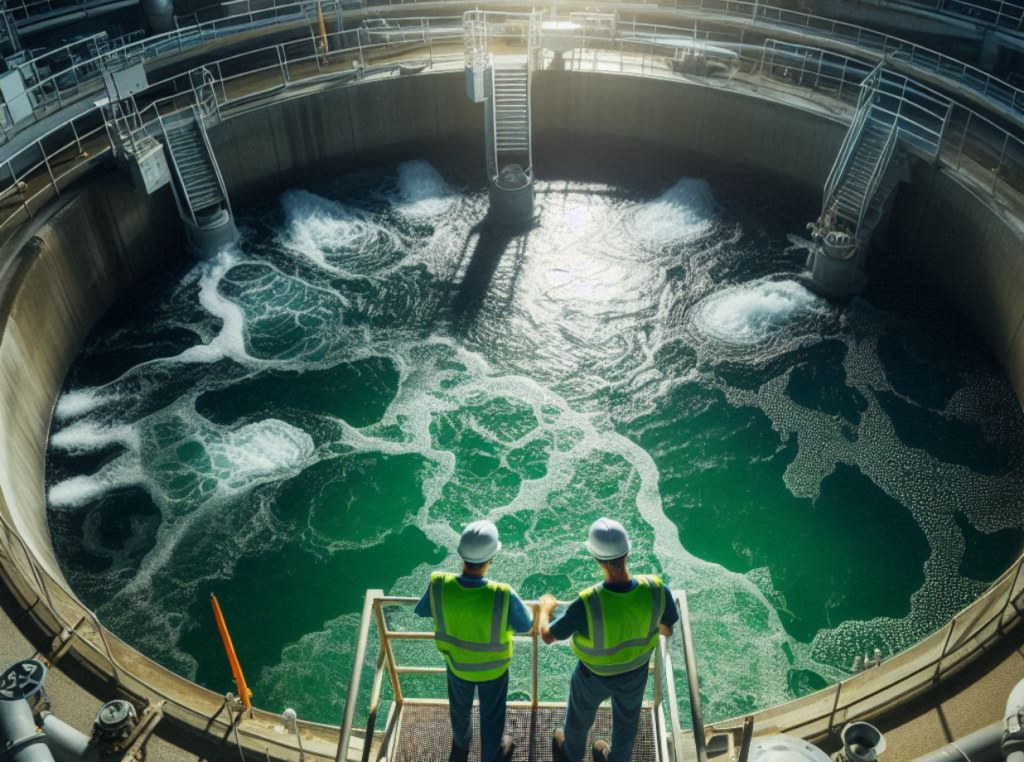Have you ever wondered how our wastewater is treated and purified before it re-enters our environment? Ensuring clean water isn’t just about sophisticated filtration systems and chemical treatments. At the heart of many successful wastewater treatment plants lies a less glamorous but equally critical component: the wastewater blower.

What Are Wastewater Blowers?
Wastewater blowers are essential pieces of equipment in your treatment plant. Essentially, these mechanical devices supply air or oxygen to the wastewater during the biological treatment process. Most importantly, they play a pivotal role in aeration tanks, where they foster an environment conducive to aerobic microorganisms.
The Role of Aerobic Microorganisms
Here’s where it gets fascinating: aerobic microorganisms are the unsung heroes of wastewater treatment. These tiny organisms break down organic waste, converting it into carbon dioxide, water, and energy. Without sufficient air supply from wastewater blowers, these microbes wouldn’t be able to perform their vital functions effectively. So, when you think about wastewater blowers, think of them as the life support for these beneficial microorganisms, ensuring they thrive and do their job efficiently.
Types of Wastewater Blowers
Understanding the different types of blowers could help you make informed decisions about which type to use in various settings. Let’s break it down:
Centrifugal Blowers
Centrifugal blowers are a popular choice for many treatment plants. These blowers utilize high-speed rotating impellers to increase air pressure and flow. They are well-known for their energy efficiency and ability to handle large volumes of air, making them suitable for medium to large plants.
Positive Displacement Blowers
Positive displacement blowers, including rotary lobe and screw blowers, operate by trapping a certain volume of air and then displacing it into the treatment system. These blowers are particularly effective in smaller plants or facilities requiring precise control over air flow.
| Blower Type | Best Used For | Advantages | Disadvantages |
|---|---|---|---|
| Centrifugal | Medium to large plants | Energy-efficient, handles large volumes | Higher initial cost |
| Positive Displacement | Small plants, precise control | Precise air flow, compact design | Can be less energy-efficient |
Choosing the Right Blower
When it comes to selecting the appropriate blower for your facility, you need to consider several factors: the size of your plant, operational needs, and ongoing energy consumption. Your choice wouldn’t just impact the efficiency of your treatment process but could also translate into significant cost savings over time.

Importance of Proper Blower Maintenance
You can’t overstate the importance of maintaining your wastewater blowers. Proper maintenance ensures they operate at optimal efficiency, which has a direct impact on the overall performance of your treatment plant.
Tips for Effective Maintenance
- Regular Inspections: Make it a routine to inspect your blowers for any signs of wear and tear.
- Lubrication: Ensure that all moving parts are properly lubricated to minimize friction and prevent overheating.
- Filter Replacement: Regularly replace or clean air filters to ensure unobstructed air flow.
Properly maintained blowers contribute to more consistent aerobic breakdown of organic waste, enhancing both the efficiency and reliability of your wastewater treatment process.
Troubleshooting Common Issues
Even with regular maintenance, you might occasionally face issues with your blowers. Here are some common problems and their potential solutions:
- Reduced Air Flow: Check for clogged filters or obstructed airways.
- Unusual Noises: This could indicate worn-out bearings or loose parts.
- Overheating: Ensure proper lubrication and check for ventilation issues.
| Issue | Potential Causes | Solutions |
|---|---|---|
| Reduced Air Flow | Clogged filters, obstructed airways | Clean or replace filters, check and clear obstructions |
| Unusual Noises | Worn-out bearings, loose parts | Inspect and replace bearings, tighten loose parts |
| Overheating | Insufficient lubrication, poor ventilation | Lubricate moving parts, improve ventilation |
Impact on Process Efficiency and Cost Savings
Blowers are not just mechanical devices; they are integral to the economics of wastewater treatment. Efficient blowers minimize energy consumption and reduce operational costs. Additionally, they ensure regulatory compliance by maintaining optimal conditions for microorganisms to break down waste.
Energy Efficiency
Energy consumption accounts for a significant portion of operational costs in treatment plants. By selecting energy-efficient blowers, you can save a considerable amount of money over the long term. Centrifugal blowers, for instance, are known for their energy-saving capabilities and could contribute to significant reductions in your energy bills.
Regulatory Compliance
Blowers also help meet stringent environmental regulations. Proper aeration ensures that the biological treatment process functions efficiently, thereby reducing the biochemical oxygen demand (BOD) and total suspended solids (TSS) in the discharged water. This means your plant is more likely to meet regulatory standards, avoiding costly fines and contributing to cleaner natural water bodies.
Future Trends in Blower Technology
The world of wastewater treatment is evolving, and so is the technology behind blowers. Understanding future trends can give you a competitive edge and prepare your facility for upcoming advancements.
IoT and Smart Blowers
The Internet of Things (IoT) is making its way into wastewater treatment plants. Future blowers could be equipped with smart sensors and real-time monitoring systems. These enhancements allow for predictive maintenance, meaning you can address potential issues before they become costly problems.
Energy Recovery Systems
Another exciting trend is the incorporation of energy recovery systems. These systems capture the energy produced during the aeration process and reuse it, leading to even greater energy efficiency and cost savings for your facility.
Advanced Materials
Research and development are also focused on using advanced materials to build more durable and efficient blowers. These innovations could lead to longer life spans and reduced maintenance requirements, providing further operational efficiencies.
AI and Machine Learning
Imagine a scenario where your blowers can adjust their operations based on real-time data analytics. Artificial intelligence and machine learning are paving the way for adaptive systems that optimize performance automatically, ensuring that your blowers run efficiently under varying conditions.
Concluding Thoughts
When you think about wastewater treatment, remember that blowers are more than just another component—they are the backbone of the biological treatment process. By ensuring optimal air supply, these devices help aerobic microorganisms thrive, leading to more efficient breakdown of organic waste. Understanding the types of blowers, their maintenance needs, and future trends will empower you to make informed decisions that enhance the overall effectiveness of your treatment plant.
So next time you hear the steady hum of a blower in action, you’ll know it’s doing a lot more than just moving air; it’s supporting the crucial biological processes that keep our water clean and safe.